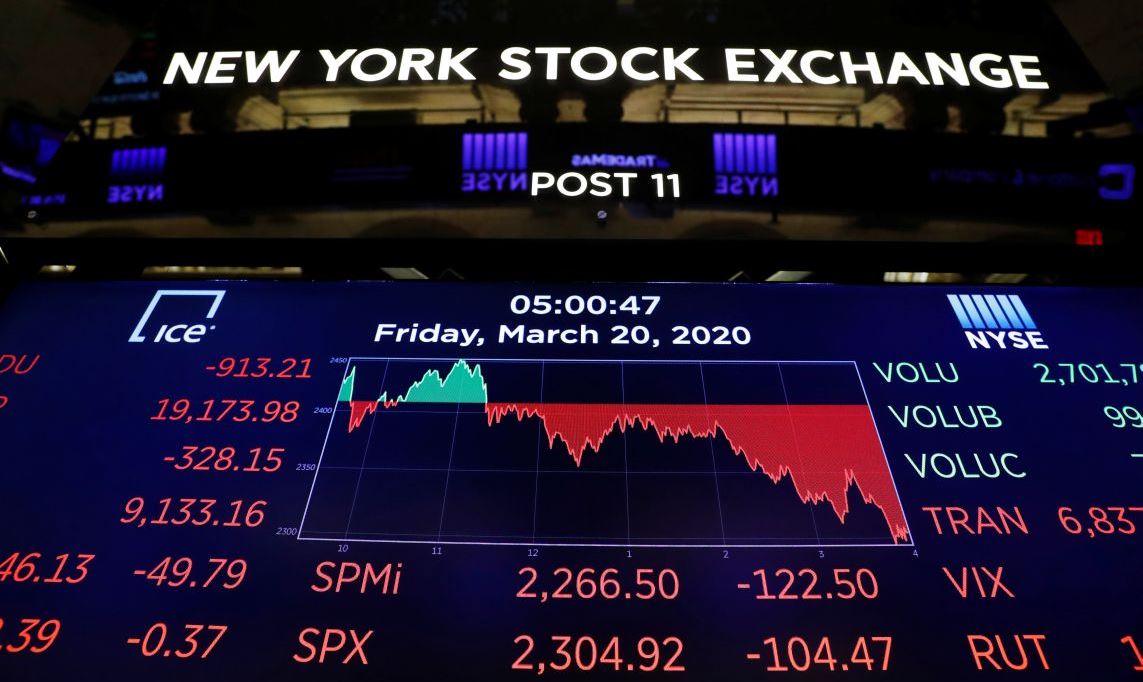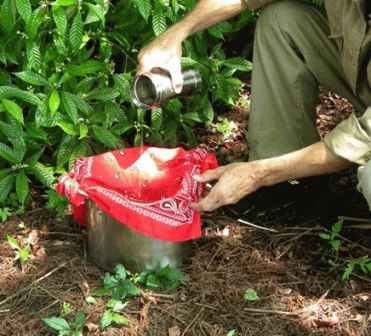
Ahead of the presidential election for the Trump administration, a new situation is developing in the US economy
Deployment of restrictive anti-epidemic measures in the United States, the threat of ruin in the medium term for American companies producing shale oil due to the decline in world oil prices to the level of profitability of shale production, the collapse of stock quotations of American stocks in March - all this created a new situation for the Trump administration on the eve of the presidential election.
Economic analysts and experts in the United States generally agree, that the recession in the American economy has already begun, but differ in the timing of its completion. Analysts Bank of America in a note to clients 19 march predicted in the second quarter to reduce 3,5 million jobs and a drop in US GDP by 12%, and for a full year - for 0,8%.
Head economist Morgan Stanley Chetan Ahya informed, that the company is considering a recession in the global and American economy in 2020 year as a baseline scenario for forecasts. Under this scenario, US quarterly GDP will slow down and not recover until the first half 2021 of the year.
A similar forecast is given by Jeffrey Gundlach from the investment company DoubleLine Capital, who believes, that the risk of the United States entering a recession by the end 2020 year is 90%.
I.e, according to these forecasts, the recession will cover the entire presidential election campaign in the United States and the very moment of the presidential election. As a result, Trump loses his main argument in the election campaign - the stability and growth of the American economy.. It will also affect Trump's prospects in the November elections., and on trade and tariff conflicts between the United States and China and other countries.
Trump may face criticism from both opponents, and within the Republican Party. In this situation, he has two options for action in relations with China.:
1. Revitalize the economy, softening course towards China, отказаться как минимум от дальнейшего повышения тарифов на китайский импорт, а в идеале вернуться к прежним тарифам, fully implement the agreement of the first stage and remove the provocative requirements for the PRC to change the economic model in the negotiations on the second stage. Reducing tariffs would reduce the economic costs of quarantine restrictions for US consumers and American importers of Chinese goods;
2. Aggravate relations with the PRC further, distracting voters from economic problems and rallying their supporters and the Republican Party as a whole on an anti-Chinese basis.
The Trump administration is still on the second path. Furthermore, White House is heavily politicizing the coronavirus pandemic, trying to connect the political and economic model of the PRC with the spread of the virus. In recent months, the rhetoric of American politicians and White House officials has been saturated with racist anti-Chinese clichés. Harassment of Chinese Media Journalists Increases in the United States, double standards have become common in assessing the same restrictive measures in the PRC and in the West.
In early March, US Secretary of State M. Pompeo accused China of providing the US with "imperfect" data on the origin of the virus and the situation with the epidemic. It came to a "heated telephone conversation" between Politburo member of the CPC Central Committee Yang Jiechi and US Secretary of State Mike Pompeo.
At the same time, the PRC in real time, from the first day of detection of coronavirus informs WHO and its own citizens about the epidemic situation. Chinese authorities donate virus samples to other countries for study, and Chinese virologists are working together on an antiviral vaccine with foreign colleagues.
President Trump 18 March during a press conference called COVID-19 "the Chinese virus", despite the requests of the official Beijing not to use this expression, which is offensive to China.
Trump adviser Kellian Conway defends propaganda term "China virus" in tweets and press conferences, claiming, that it is just a "link to the origin of the virus".
Mid February The Wall Street Journal published a racist commentary "China is a real sick man of Asia" in connection with the epidemic in the PRC, refusing to apologize. In response, three American journalists from this publication, employed in Beijing, were expelled from the country. Washington used this as an excuse to expel from the US in March 60 Chinese media journalists without a specific reason and seriously restrict the professional activities of the remaining.
The White House is trying to make the PRC a "scapegoat" for the growth of the epidemic in the United States, covering up their own shortcomings in the fight against the epidemic and the major shortcomings of the American health care system. China noted contradictions in Trump's position with his previous statements, when he praised China's efforts to combat the virus and thanked Beijing for data sharing and cooperation. Now Trump is complaining, that China was late in informing the US of the virus.
Chinese Global Times in the editorial column 19 March suggested, that the reasons for the White House's politicization of the coronavirus story are the aggravation of the pandemic situation in the United States as a result of the miscalculations of the American authorities and the continuing collapse of the American stock market. And before the voters you have to make excuses.
Chinese experts fear, that all this will lead to an escalation of Sino-American tensions "in a wide range of areas".
A photo: REUTERS / Lucas Jackson
Victor PIROZHENKO











